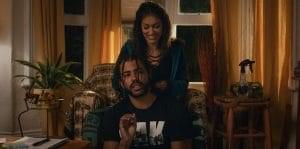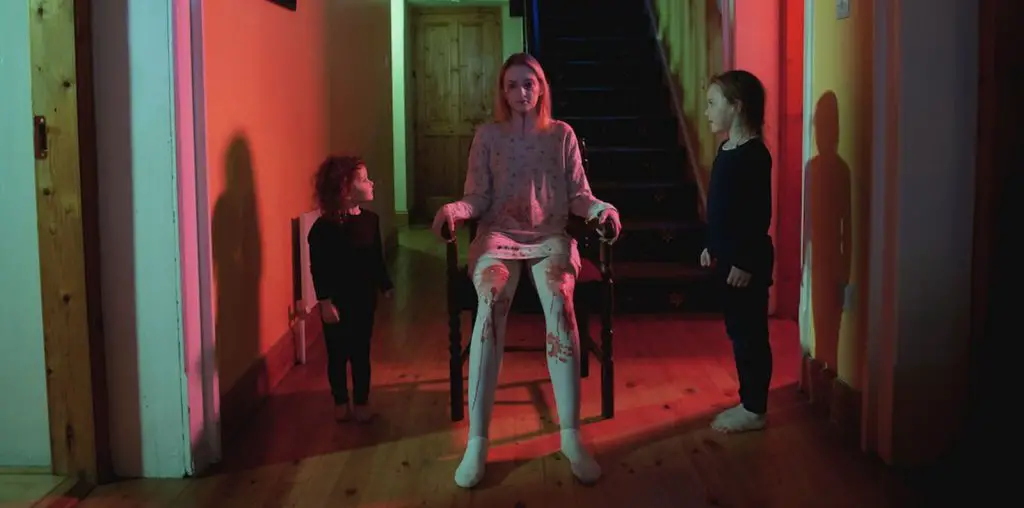
Oakland native real-life childhood friends Daveed Diggs (Hamilton) and Rafael Casal (The Away Team) journeyed together and wrote a screenplay during a span of nine years, whom also star in the film Blindspotting to accurately portray the community, culture, and real life in the city of Oakland. The film follows two lifelong friends, Collin (Diggs) who is trying to abide within the confined rules to be released from his year-long probation, but his best friend Miles (Casal) seems to make matters more complicated as he is rash, hot-tempered, and always finds trouble. Collin realizes the impulsiveness and bad company of Miles may lead to further punishment unto himself. In the final days of the probation, Collin’s world is turned inside out as he witnesses a white police officer gun down an unarmed black citizen, while he’s waiting at the red stop light to make his 11 p.m. curfew. Blindspotting explores police brutality, racism, misconceptions, friendship, interracial relationships, and restoration.

“What they were doing is on every level, they were building Oakland into the soundtrack.”
Composer Michael Yezerski (The Black Balloon) was tasked to create an authentic score that resembles the Oakland vibe. Yezerski clarified, “Music was very high on the radar for Rafael and Daveed because they are musicians themselves. It was incredibly important that there was integrated musical vision. They brought a very personal story into the room for me. I grew up on the music of Oakland without even knowing that incredible history in the city. The score is a distillation in many ways somewhat the musical history of Oakland, but just a bit of the sound and the influences that I’ve had as a composer my whole life. There are about 21 original pieces that were written for the film and that’s only on the score side, the guys also had a bunch of songs that they commissioned as well. It’s a combination divided into two sections: song cues and psychological darker more traumatic cues. For the more upbeat songs in the first half of the film, we used local musicians from Oakland. What they were doing is on every level, they were building Oakland into the soundtrack. The question for me was how does the score fit into that or what is the role of the score in between these pieces of the needle drop, the music of Oakland’s heritage.”
The urban soundscapes of Oakland were embedded into the musical tracks. “In terms of the grittiness and the actual texture of the city, the production sound mixer recorded a bunch of texture sounds in Oakland like BART trains, the traffic, and cityscape. We used all these location sound recordings of several BART trains and traffic sounds inside the music. Not used in a way that you would consider sound design in a film and not used literal sound effects or figurative sound effects, but they are musical textures and put them through musical filters and matched them with tones and layers so they become part of the musical wall of sound. It’s going trigger a subconscious awareness of being in an urban American environment. There are points in the film where the music had to swell through these moments of extreme tension or psychological trauma,” expanded the composer.

“The hardest part of the film was tracking the shifting emotions through the film…”
One of the most vital parts is relaying the proper emotion for the scene. Yezerski expressed, “The hardest part of the film was tracking the shifting emotions through the film. The film starts as a buddy comedy and the music score reflects that; the score is a little bit lighter, more funk-based, we use the horns in the band to show the variety of sounds. Then when the film turns, the music turns with it. I’m breaking down all the elements that we’ve set up from 10-20 layers of instruments in the first cue, by the time we get through ¾ way of the film, we maybe have three. Everything just gets broken down, I’m taking elements out, putting through musical filters, messing around with them, distorting them, and turning them on my head. Everything that’s happening on the pictures, I’m doing it on the score.”
Blindspotting personifies an accurate and realistic depiction of Oakland through immersion of utilizing local musicians, blending in the urban soundscapes, and inserting the historical culture all embedded into the music. Composer Michael Yezerski heightened the already powerful, raw film with his extensive knowledge from the music of Oakland, integrating the specific city elements within his brilliant music composition, and shifting around the songs for the maximum emotional impact.

